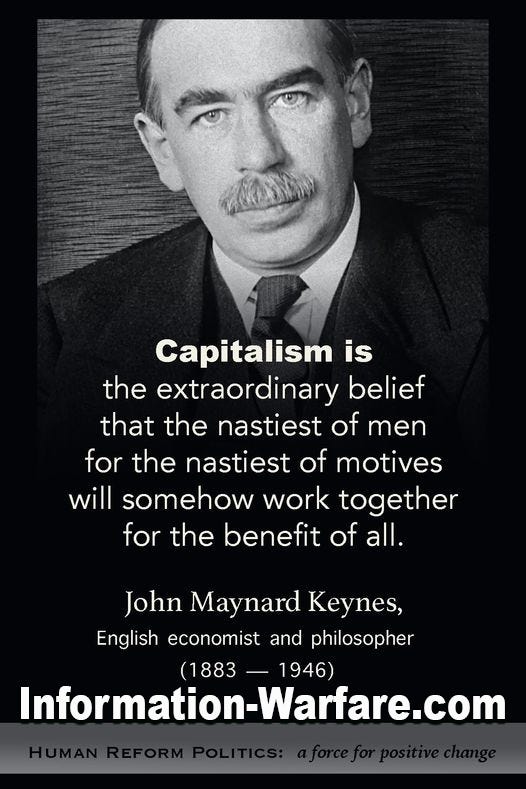John Maynard Keynes on the Paradox of Capitalism
Keynes challenges the belief that the ruthless pursuit of personal gain in capitalism can somehow result in broader societal benefits, urging us to rethink the ethics and efficacy of unchecked market
John Maynard Keynes, a prominent English economist and philosopher, who is best known for his ideas on the causes of prolonged unemployment and economic instability, which laid the foundation for modern macroeconomics and Keynesian economics.
The Quote:
“Capitalism is the extraordinary belief that the nastiest of men for the nastiest of motives will somehow work together for the benefit of all.”
Analysis:
This quote reflects Keynes’ critical view of capitalism, particularly the idea that self-interested behaviors driven by greed and personal gain could somehow result in a positive outcome for society as a whole. It’s a commentary on the paradox inherent in capitalist systems, where the pursuit of individual wealth and success can lead to broader economic benefits, despite the often ruthless nature of the competition involved.
Keynes was known for advocating for government intervention in the economy, especially during periods of economic downturn. He believed that unchecked capitalism could lead to economic instability and social inequality, which is why he supported policies that would regulate the economy to prevent these outcomes and ensure more equitable growth.
Context:
This quote is often used in discussions about the ethics and efficacy of capitalism, particularly in debates about whether capitalism, driven by self-interest, can truly lead to the common good. It suggests skepticism about the notion that the market, left to its own devices, will naturally benefit everyone.
Conclusion:
Keynes’ perspective, as captured in this quote, challenges us to critically assess the assumptions underlying capitalist economies. It’s a reminder of the potential dangers of relying solely on the invisible hand of the market to achieve societal well-being and the importance of balancing economic freedom with regulation to mitigate its excesses.


